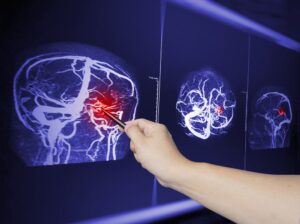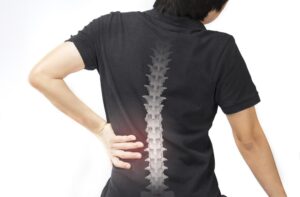Big rig truck accidents are the stuff of nightmares, and for good reason. These large trucks can weigh up to 30 times more than the average passenger car, and when they’re involved in a collision, the results are often catastrophic.
You may face many injuries as a victim of one of these accidents. From traumatic brain injuries to broken bones, the types of injuries sustained in truck accidents are as varied as they are devastating. Each carries its own set of challenges and obstacles, but all can profoundly affect your physical, emotional, and financial well-being.
But here’s the thing: you don’t have to face this alone. Keep reading to learn more about the most common types of truck accident injuries and how a truck accident attorney can help you secure the compensation you need.
7 Common Types of Big Rig Trucking Accident Injuries
The alarming rise in truck accidents across the United States is a growing concern. According to the Federal Motor Carrier Safety Administration (FMCSA), large truck accidents have surged by a staggering 9% in recent years.
As these devastating big rig accidents become more frequent, it’s crucial to understand the severe and life-altering injuries related to commercial truck accidents.
1. Head and Brain Injuries
 Motor vehicle crashes are a leading cause of traumatic brain injuries (TBIs), accounting for 50% of all reported cases. This startling statistic encompasses accidents involving automobiles, big rig trucks, motorcycles, bicycles, and even pedestrians who are struck by vehicles.
Motor vehicle crashes are a leading cause of traumatic brain injuries (TBIs), accounting for 50% of all reported cases. This startling statistic encompasses accidents involving automobiles, big rig trucks, motorcycles, bicycles, and even pedestrians who are struck by vehicles.
The immense force generated during a collision can cause the head to violently strike objects within the vehicle or rapidly accelerate and decelerate, leading to traumatic brain injuries (TBIs).
- Mild TBIs, such as concussions, can cause symptoms like headaches, dizziness, confusion, memory problems, and difficulty concentrating. While some individuals may recover from mild TBIs with proper rest and medical care, others may experience ongoing symptoms that interfere with their daily lives.
- More severe TBIs can result in devastating consequences, such as long-term cognitive impairments, personality changes, sensory disturbances, and physical disabilities. In the most extreme cases, severe TBIs can lead to a coma or even death.
The road to recovery can be long and challenging, often requiring extensive medical treatment, rehabilitation, and ongoing support.
Victims may need to work with a team of specialists, including neurologists, neuropsychologists, occupational therapists, and speech therapists, to regain lost skills and adapt to their new circumstances.
2. Back and Neck Injuries
The violent forces involved in trucking accidents can also cause significant damage to the back and neck.
- Whiplash, a common injury caused by the rapid back-and-forth motion of the head, can lead to chronic pain, stiffness, and reduced range of motion in the neck.
- More severe back injuries, such as herniated discs or spinal cord damage, can have far-reaching consequences. Herniated discs occur when the soft, gel-like center of a spinal disc pushes through a tear in the outer layer, causing pain, numbness, and weakness in the affected area. In some cases, surgery may be necessary to repair the damaged disc.
3. Broken Bones
The powerful impact of a commercial trucking accident can cause bones to fracture or shatter, leading to intense pain, swelling, and limited mobility.
Fractures can occur in any part of the body, but some of the most common sites include the arms, legs, ribs, and skull.
- Arm and leg fractures can make it difficult or impossible to perform everyday tasks, such as dressing, bathing, and driving. The harmed individual may require surgery to realign the broken bones and stabilize them with plates, screws, or rods. After surgery, a lengthy rehabilitation period may be necessary to regain strength and function in the affected limb.
- Rib fractures can be particularly dangerous, as the sharp edges of the broken bones can puncture nearby organs, such as the lungs or heart. In severe cases, multiple rib fractures can lead to a condition called flail chest.
Skull fractures can also have serious consequences, as they may cause brain injuries. Depending on the severity of the fracture and the presence of any underlying brain damage, an injured party may require emergency surgery.
4. Lacerations
During a trucking accident, broken glass, sharp metal edges, and other debris can cause deep cuts or lacerations to the skin and underlying tissues.
These injuries can range from minor scrapes to severe wounds that require immediate medical attention.
- Lacerations on the face can be particularly distressing, as they may result in permanent scarring and disfigurement. The survivor may experience a range of emotional challenges as they adapt to changes in their appearance, including lowered self-esteem, anxiety, and depression.
- Deep lacerations can also cause damage to muscles, tendons, and nerves, leading to impaired function and sensation in the affected area. Surgery may sometimes need to repair the damaged tissues and restore as much function as possible.
Lacerations can also lead to significant blood loss, particularly if they involve large blood vessels or are located in areas with a rich blood supply, such as the head, neck, or torso.
Rapid blood loss can cause shock, a life-threatening condition that occurs when the body’s organs do not receive enough blood flow to function properly. Prompt medical attention is essential to stop the bleeding, replace lost blood volume, and prevent complications.
5. Rib and Torso Injuries
 The rib cage and torso house several vital organs, including the heart, lungs, liver, spleen, and kidneys. In a severe 18-wheeler trucking accident, the immense force of the impact can cause the ribs to fracture or break, potentially damaging these critical organs.
The rib cage and torso house several vital organs, including the heart, lungs, liver, spleen, and kidneys. In a severe 18-wheeler trucking accident, the immense force of the impact can cause the ribs to fracture or break, potentially damaging these critical organs.
Rib fractures can make breathing, coughing, or moving excruciatingly painful. In some cases, the sharp edges of the broken ribs can puncture the lungs, leading to a potentially life-threatening condition called a pneumothorax, or collapsed lung.
Other potential complications of rib and torso injuries include:
- Hemothorax: An accumulation of blood in the space between the lung and the chest wall, which can compress the lung and cause difficulty breathing.
- Pulmonary contusion: Bruising of the lung tissue, which can lead to inflammation, fluid accumulation, and impaired oxygen exchange.
- Abdominal organ injuries: Damage to the liver, spleen, kidneys, or other abdominal organs, which can cause internal bleeding and potentially life-threatening complications.
Treating rib and torso injuries often requires a multidisciplinary approach, involving pain management, respiratory therapy, and close monitoring for signs of complications. In severe cases, emergency surgery may be necessary to repair damaged organs, remove accumulated blood or air, or stabilize fractured ribs.
6. Spinal Injuries and Paralysis
Spinal cord injuries are among the most devastating consequences of trucking accidents, as they can result in permanent changes to sensation, movement, and bodily functions.
The spinal cord is a bundle of nerves that carries signals between the brain and the rest of the body, enabling voluntary movements and sensations. When the spinal cord is damaged, the flow of signals can be partially or completely disrupted, leading to a loss of function below the injury site.
The severity of the impairment depends on the location and extent of the damage:
- Incomplete spinal cord injuries: Some sensation and movement may be preserved below the injury site, as the spinal cord is not entirely severed.
- Complete spinal cord injuries: No sensation or voluntary movement is possible below the injury site, as the spinal cord is completely severed.
Spinal cord injuries are typically classified based on the lowest part of the body that retains normal function:
- Tetraplegia (quadriplegia): Paralysis affecting the arms, hands, trunk, legs, and pelvic organs, resulting from damage to the cervical (neck) region of the spinal cord.
- Paraplegia: Paralysis affecting the trunk, legs, and pelvic organs, resulting from damage to the thoracic, lumbar, or sacral regions of the spinal cord.
Living with a spinal cord injury requires significant adjustments and ongoing medical care. Truck accident survivors may need to use mobility aids, such as wheelchairs or walkers, and may require assistance with daily tasks, such as dressing, bathing, and toileting.
7. Wrongful Death
In the most tragic cases, trucking accidents can result in wrongful death. In a recent year alone, 3,986 people lost their lives in large trucking accidents across the United States.
Losing a loved one in a sudden and preventable accident is an unimaginable tragedy that can leave families struggling with grief, anger, and a sense of injustice.
In addition to the emotional toll, the loss of a family member can also cause significant financial hardship, particularly if the deceased was the primary breadwinner.
Compensation for Truck Accident Injuries
 The amount of compensation you can receive after a big rig truck accident will depend on various factors, including the severity of your injuries, the extent of your financial losses, and the circumstances surrounding the accident.
The amount of compensation you can receive after a big rig truck accident will depend on various factors, including the severity of your injuries, the extent of your financial losses, and the circumstances surrounding the accident.
Some of the types of compensation that may be available to truck accident survivors include:
- Medical expenses: This can include compensation for hospital bills, surgery costs, prescription medications, physical therapy, and any other medical treatment related to your injuries.
- Lost wages: If your injuries have prevented you from working, you may be able to recover compensation for the income you have lost due to the accident.
- Future lost earnings: If your injuries have left you with a permanent disability that impacts your ability to work in the future, you may be entitled to compensation for the income you would have earned over the course of your career.
- Pain and suffering: This type of compensation is intended to cover the physical pain, emotional distress, and mental anguish you have experienced as a result of the accident.
- Property damage: If your vehicle or other personal property was damaged in the accident, you may be able to recover compensation for the cost of repairs or replacement.
Remember, seeking compensation is about ensuring that you have the resources you need to recover from your injuries, support yourself and your family, and move forward with your life after a devastating truck accident.
So don’t hesitate to contact a qualified attorney today to discuss your legal options and take the first step toward securing the compensation you deserve.
The Importance of Seeking Legal Representation
Trucking companies and their insurance providers often have teams of lawyers working to minimize their liability, leaving you at a significant disadvantage without proper legal representation.
A skilled truck accident attorney can guide you through the legal process, gather evidence, negotiate with insurance companies, and build a strong case on your behalf. They can help hold negligent parties accountable for their actions, whether the truck driver, the trucking company, or the manufacturer of faulty truck parts.
Recovering from a trucking accident can be a long and challenging process, both physically and emotionally. The truck accident plaintiff may face extensive medical treatment, rehabilitation, and therapy, as well as emotional trauma such as anxiety, depression, and PTSD.
The financial burden of these expenses can overwhelm you, especially if you cannot work due to your injuries.
During this difficult time, truck accident victims need to prioritize their health and well-being by focusing on their recovery and allowing a skilled personal injury attorney to handle the legal aspects of their truck accident case.
Reiner, Mainzer & Frankel Offers Legal Solutions to Your Accident-related Needs
 No two truck accident cases are alike, and we know that every big rig survivor has individual needs that should be met. Our highly qualified team is committed to helping victims get the maximum compensation possible after an accident.
No two truck accident cases are alike, and we know that every big rig survivor has individual needs that should be met. Our highly qualified team is committed to helping victims get the maximum compensation possible after an accident.
While no amount of compensation can ever erase the pain and suffering caused by a trucking accident, it can help alleviate the financial burden and provide a sense of closure for those affected.
Contact us today for a free case evaluation at (530) 241-0290 or fill out a contact form online. We will discuss the details of your accident with you, explore every aspect of what happened, and help you reclaim the compensation you need to move forward with your life.
